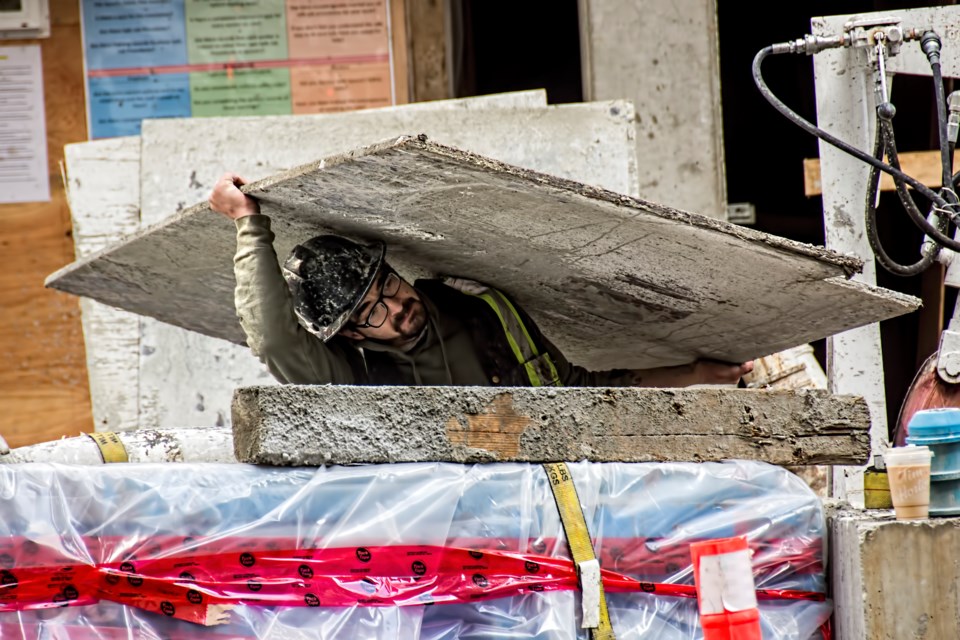A new report from the BC Construction Association (BCCA) paints a grim picture for non-residential construction contractors as rising input costs collide with weakening demand and concerns about being paid on time.
Investment in B.C.’s industrial, commercial, and institutional (ICI) construction sectors is down 10.9 per cent since February 2020, while the price index for labour and material spiked 19.6 per cent in the past two year, notes the Industry Stat Pack report, released October 26.
As an example, prices for fabricated metal products and construction materials increased 43.6 per cent between February 2020 and June 2022 according to Statistics Canada’s Producer Price Index.
Non-residential construction has seen a whopping 80 per cent increase in the value of current projects compared to five years ago, driving construction wages up 26 per cent in the same period, and 11 per cent higher today than in 2021, according to the BCCA.
That 2022 jump includes a 2 per cent increase due to the five-day mandatory paid sick leave legislated in the province this past January, the BCCA notes.
The province has also failed to deliver on prompt payment legislation, which the BCCA said presents a financial risk for contractors in a slowing market, putting some “ in danger of bankruptcy as they wait 90-120 days to be paid.”
Despite industry efforts, British Columbia does not have prompt payment legislation.
The 2019 Builders Lien (Prompt Payment) Amendment Act would have required an owner to pay a contractor within 28 days of receiving an invoice. It also requires contractors to pay their subcontractors within seven days of receiving payment from a project owner. Ontario has had similar legislation in place since October 2019, Saskatchewan since March 2022, Alberta since August 2022. Quebec is currently running a pilot project mandating prompt payment, according to the BCCA.
“Waiting to be paid is getting more expensive” says Chris Atchison, BCCA President. “Slow payment for services rendered is unique to our industry, and with costs of goods, labour, and borrowing all rising, many B.C .contractors are reaching crisis. Unlocking cash flow is an economic necessity and in the best interests of every community in B.C.”
B.C.’s 26,262 private ICI construction contractors, mostly small-to-medium sized businesses, are also facing a severe labour shortage, according to the BCCA. The number of tradespeople in the industry has dropped 5 per cent over [the past] three years. The average company size has decreased 7 per cent in the same period to an average of 6.53 workers, it noted.
The BCCA reports that the estimated value of major construction projects underway in the province is $135.4 billion, while the shortfall in skilled workers will reach more than 5,600 within five years.
“B.C.’s construction industry is massive, essential, and struggling” cautions Atchison. “Make no mistake: many [contractors] are reaching a breaking point. The urgent need for more housing and other infrastructure development hangs in the balance.”



